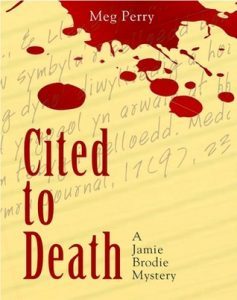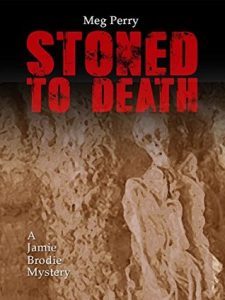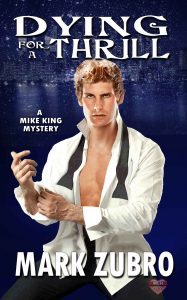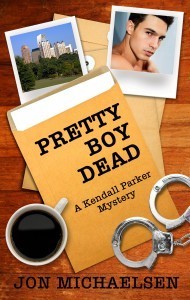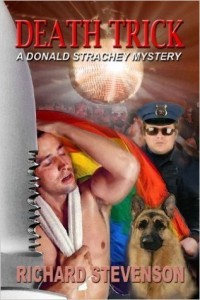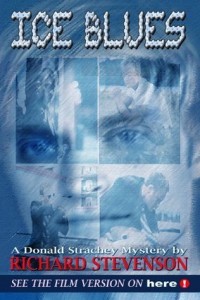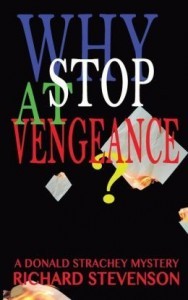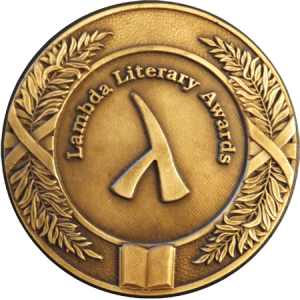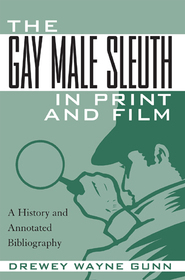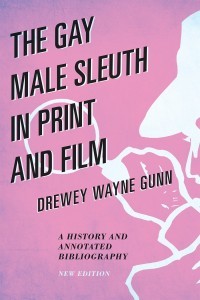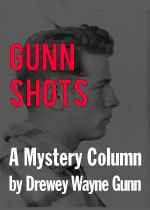Jon Michaelsen's Blog: Ramblings, Excerpts, WIPs, etc., page 20
May 21, 2016
Guest Blogger: Pink Lemonade by multi-talented author, Jon Wilson
<!DOCTYPE html>
p {
text-indent: 50px;
}

A five-part series wherein I examine the pitfalls—both real and imagined—and difficulties—both encountered or merely anticipated—to being a gay author in the 21st Century, and attempt to discuss how said pitfalls and difficulties can be used to our advantage, thereby employing the old adage “Making lemons into lemonade.” (And, in advance of the inevitable inquiry, allow me to retreat into the naivete allowed one of my advanced years and answer simply: “What’s a Beyonce?”)
Part 5:
Gay Villainy
or
“But I Don’t Wanna Play a Cop, Momma”
The January 1955 issue of ONE magazine featured an essay by Norman Mailer entitled “The Homosexual Villain”. Yeah, written by the very same guy who infamously proclaimed “homosexual potentiality” was something true men overcame. According to John Loughery, in The Other Side of Silence: Men’s Lives & Gay Identities – A Twentieth-Century History:
“Though [Mailer] later repudiated “The Homosexual Villain” as a lapse on his part into liberal sentimentality, gay readers were impressed at the time by the novelist’s admission of his own homophobia and use of gay men as cardboard bad guys in his fiction…”
Sadly I can’t find Mailer’s essay archived online. Proof of its existence, like the existence of the Colossus of Rhodes or the Babylonian Hanging Gardens, lies only in other’s retellings of it. (Really we need an online LGBT archive people!) Or you can buy Mailer’s book. He’s been dead almost ten years but I’m sure where ever that’s left him, he’s still gleefully counting sales.
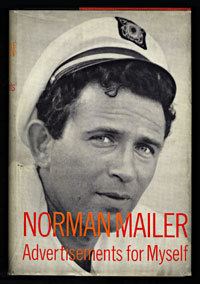
It’s actually probably worth at least checking out from your local library for “The Homosexual Villain” and “The White Negro” alone.
I discussed masculinity and the gay perspective in Thursday’s Pink Lemonade Part 3 (or, alternately, HERE). Today I want to talk about Gay Villainy and whether or not we’re now living in a post-GayLib world.
Last year, the Advocate offered a list of the 21 Best and Worst Queer Movie Villains (watch out, there are ads galore on that website). Five years ago, Salon took a more focused look at the topic (an even worse site as far as intrusive ads are concerned), wondering whether Javier Bardem’s Bond villain should be seen as progress or relapse. ..Though they, too, couldn’t resist the clickbait that are listicles.
I do appreciate that there isn’t complete overlap in the lists. For instance, Salon includes Baron Harkonnen (from Dune) and Frank Fitts (American Beauty), both of whom I’ll talk about a little more later, and the Advocate lists Joel Cairo (The Maltese Falcon), the Leopold and Loeb clones in Hitchcock’s Rope, and Dr. Elliot (Dressed to Kill). There is of course cross-over and its about what you’d expect: Ripley, Tramell and Buffalo Bill, among others. Both also include Miriam Blaylock (The Hunger) which left me scratching my head. Maybe it was where I was at at the time, but I never saw her as a villain.
Interestingly, the lesser-known (to me) website NewNowNext compiled the best list maybe because they came at it with a more decidedly gay sensibility and realized “Embarrassing” was the appropriate way to describe some of these characters. I loved the inclusion of Praetorius (The Bride of Frankenstein) because he looms so large in my childhood memories.
[image error]
Ernest Thesiger, as Praetorius, also looms large over John Carradine in director James Whale’s Bride of Frankenstein.
None of the lists mention Sebastian Venable, maybe because he’s already dead at the start of Suddenly Last Summer. I discussed that play/film in yesterday’s Pink Lemonade, along with my thoughts on Tennessee Williams. I claimed Venable was the prototype of the evil homosexual perceived by America in the post WW2 years: manipulative (he employs his mother and cousin as bait) and predatory (he does something never-quite-made-explicit to young men).
For me, the various gay villains listed fall into a few discreet categories. There are those who’s evil seems to stem solely from their queerness. I’m looking at you boys from Rope, and you Frank Fitts and, yes, even you my beloved Praetorius. Praetorius also falls into another category, which is ‘he’s gay (or a pansy, which is what it usually means) because then the audience/reader will immediately know he’s up to no good’. Other examples from that category include Waldo Lydecker (Laura), Joel Cairo and even Scar from the Lion King. Scar crosses over into a separate subset, ‘pansy royalty’, rubbing his leonine shoulders and pedicured claws with the Princes John and Edward, (The Adventures of Robin Hood and, everyone’s favorite film, Braveheart, respectively). And then there are those who’s gayness is a sort of character enhancement. This category would include Ripley (can I just say how much I hated that Matt Damon movie?), Baron Harkonnen, and Bond’s Raoul Silva. (It’s maybe Bardem himself, but that character really creeped me out.)
About five years ago, The Wrap, also ran a story about gay villainy, this time “applauding” the arrival of what they called the new gay villain. These were examples from my last category above. Those who’s gayness seems to have been added as a character enhancement.
“Once, branding a villain as homosexual was dehumanizing. Today, a villain’s homosexuality is often the most humanizing thing about him.
“The arrival of more nuanced, less stereotypical gay villains comes as gay characters receive more realistic portrayals on shows like ABC’s hit “Modern Family.” Rather than remaining relegated to the rom-com role of gay best friend, gay characters are finally moving the action. ”
Okay, first, I object to Cam and Ginger’s characters being called more realistic. They ARE NOT routinely humiliated for the sole fact of their sexuality. but they spend a lot of time being “gay” (as a tv character trope) as opposed to “gay” (as a real life phenomenon).
The Wrap article goes on to say this, without any apparent irony:
“[A]t least Bond has a worthy gay adversary.
“In the bad old days, films and movies gave their villains mincing walks, frilly outfits, flowery language, fussy cats and all sorts of other supposedly effeminate accessories to tip off viewers that they were homosexual – as if homosexuality were synonymous with weakness.”
Now watch that scene again. Yeah.
John Waters, appearing on the now-defunct Craig Ferguson show said this: ”I sometimes argue with some of the gay militant groups because, why do we have to be ‘good’ all of sudden? I’m for the rights of bad lesbian mothers. I think that I’m for gay villains. I don’t think suddenly we have to be good all the time.”
I agree with Waters generally. I haven’t yet featured a gay villain in any of my books. (It’s been suggested that Liam O’Mara and Sam Mackey may have had a homosexual past, but, for me, the closest thing to a villain I have in A Hundred Little Lies is the protagonist, Jack Tully.) But I’m not adverse to it. There is the shady character of Hobie Wainwright in the Declan Colette books, but nothing much is known about him at this point and whether or not he emerges as a good guy or a bad’un remains to be seen.
[image error]
The Author’s Westerns (yeah, I keep pimping them)
Available from Lethe Press!
I do worry about putting in a gay villain who’s villainy stems from his or her homosexuality. And I fret when I read current gay mysteries that seem to fall back, at least in part, on that trope. I can happily say that the most distressing formula that still regularly recurs is the murder (or suicide) as a result of gay blackmail, which I hope to address (and hopefully subvert) in a Colette story soon. I’m also not pleased that so many gay mysteries still involve, to varying degrees, male prostitution. I’ve never known a male prostitute, in RL, except the one I hired one time so that I could say I did, but as they are more often victims than villains, that’s a topic for another time.
I don’t worry about writing a gay villain who’s gayness is merely character enhancement. I’m not sure I’d be able to do that. Nor do I worry about creating a character who’s gayness is merely a symptom of his deviance. At the very least, I’d hope such a signal would be misread by my readers! No, both of those seem like pitfalls straight writers need to keep an eye out for.
So, writing this, I’ve been racking my brain to come up with a gay villain I “liked”. The Wrap article identifies Omar (HBO’s The Wire) as a “model for the modern-day gay villains…” But, like Catherine Deneuve’s vampiress in The Hunger, I never thought of Omar as a villain. He’s an anti-hero, which is a VERY different character type.
The best I could come up with were Joel Cairo (in the book, The Maltese Falcon, more than the movie) and Praetorius, even though both of them were tagged as “weak” (or sissified) by their deviant natures. And then I remembered Doctor Smith from Lost in Space, who typifies every bad stereotype a gay character can embody (though more so as the series progressed, early on he was quite evil). But, y’know, even as a kid I felt I knew where he was coming from and always found myself secretly rooting for him…
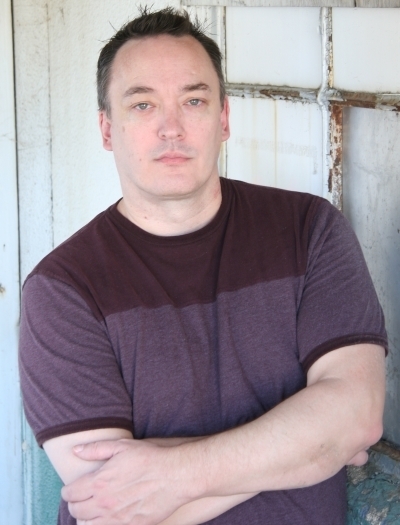
Jon Wilson is the author of Cheap as Beasts, a current finalist for the Lambda Literary Award Best Gay Mystery of 2015. He’s also written a follow-up volume, Every Unworthy Thing, as well as two westerns. He lives and works in Northern California, where he worries that all that bleach may have done irreparable harm to Javier Bardem’s hair.
The Pink Lemonade Blog Tour concludes tomorrow at Charlie Cochrane’s Blog, and, if you missed any previous entries, you can find them HERE (Part 1), HERE (Part 2), HERE (Part 3), and HERE (Part 4).
I’m giving away a signed copy of both the Declan Colette books at the end of this blog tour. Just leave a semi-cogent comment (which, I suppose, means I’ll have to allow “YOU SUCK!”) to any of the five parts in the Pink Lemonade Blog Tour to enter (if you leave multiple comments or comment each day, you get entered for each comment)!
[image error]
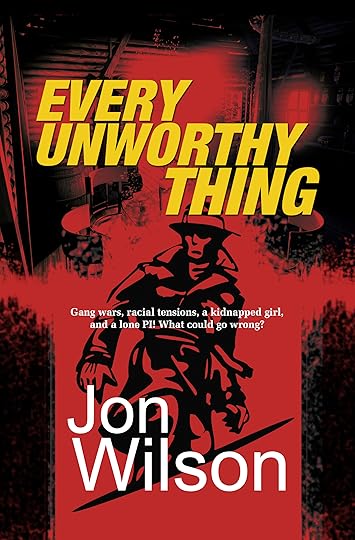
May 14, 2016
Interviewing Meg Perry, Author of the Jamie Brodie Mysteries
Interview by Matthew G Moore
On behalf of the Facebook Gay Mystery-Thriller-Suspense Fiction Group, thank you for giving us a little of your time today, answering questions fans of the genre really want to know.
Thank you for inviting me!
Can you share where do you live?
I live in Daytona Beach, Florida, on a barrier island that we call “the beachside,” two blocks from the ocean.
Without getting too personal, can you share a little about your home life?
There’s not much to tell! I’m contentedly single. I live with Wesley and Ace, two 17-pound boy cats, and I have a small vegetable garden.
Writers rarely like to toot their own horns; seriously! What would you say is your greatest accomplishment?
A friend, who is himself a librarian and gay, said to me (after reading Psyched to Death), “How did you get into my head?” I’m delighted to know that Jamie is resonating with his real-life counterparts.
What inspires and challenges you most in writing? And can you describe your writing process?
Inspiration comes from my job. Most of Jamie’s experiences as a librarian have happened to me and my co-workers. My primary challenge is writing the mystery aspect of the books. Finding the right blend of believability and surprise is tricky. In terms of my writing process – each book begins with an idea. Sometimes it’s my idea, sometimes someone else suggests something. My archaeologist friend, Mary, said, “You should write a mystery about bog bodies.” That became Stoned to Death. I was watching Ancient Aliens one night, laughing hysterically, and thought, “I have to put this in a book.” That became Encountered to Death. Once I have the idea, I start figuring out the plot. Sometimes I know how I want that to unfold; sometimes I need to brainstorm with my writing group. Once I have the plot figured out and write the first draft, I present it in segments to the group and hammer out the changes that need to be made. I couldn’t do what I do without my group.
You’ve probably answered this question a hundred times, but please indulge our readers (and fellow writers): Do you fly by the seat of your pants when writing or plot out your storylines?
I’m a seat-of-the-pantser. Sometimes I know how the book will end when I start writing, but more often I don’t. There are times – especially for the longer books – when I get deep into a story then have to create a timeline for myself, to make sure I don’t lose any threads along the way.
You currently have The Jamie Brodie mysteries that you’ve been writing since Cited to Death in 2012 and you’re about to release book twelve. That’s a lot of books within four years; how do you sustain serialized, continuing characters?
The story of Jamie’s life has unfolded organically over the time I’ve been writing the books. He’s done things that I never expected him to do, and he’s changed by each of the experiences he’s had. It sounds a little crazy to say that Jamie tells me where he’s going, but that’s the way it feels sometimes.
What was your inspiration for the incredible Jamie Brodie?
Jamie and his family developed out of characters that I’d created in my head as a kid, when I amused myself by making up my own stories. (Some children have imaginary friends. I had a whole town.) When I decided to start writing about “a librarian who solves crimes using research,” Jamie was a good fit. He’s the librarian I’d like to be.
I’m also incredibly interested to know why you gave him such acute asthma? His co-workers and his boss are very understanding and agreeable when he seems to keep being rushed to the hospital. Books always paint academics as backstabbing, jealous, drama queens that always attempt to one up one another. Your characters seem to be nice and supportive of each other. Are people that understanding and as nice as you write them in your field?
Every hero needs a vulnerability. Jamie is an outstanding athlete, so I wanted to give him something that could bring him to full stop physically. His asthma is an aggravation that he can’t ignore, but it doesn’t hinder him when it’s not acute. It also helps to define his ambivalent relationship with Los Angeles, a place he never intended to live and which has made his asthma much worse. As far as backstabbing, drama queenish academics – that’s sometimes true for university professors, but not librarians! Academic librarians are the most congenial, collegiate group of people you’ll ever meet.
One of my favorite scenes from the books was when Jamie and Liz are at the Library conference and they begin to name off what kind of librarian people are based on their body type and clothing. How accurate is that?
That’s as accurate as a generalization ever gets. 
April 30, 2016
Exclusive Excerpt: No Good Deed by Michael Rupured
No Good Deed by Michael Rupured
A Philip Potter Story
On Christmas Eve in 1966, Philip Potter, a kind-hearted Smithsonian curator, wraps up his last-minute shopping. Meanwhile, James, his lover of several years, takes his own life back in their home. Unaware of what awaits him, Philip drops off gifts at a homeless shelter, an act of generosity that will later make him a suspect in the murder of a male prostitute.
Following James’s shocking death, two men enter Philip’s life—and both drive yellow Continentals. One of them, though, is a killer, with the blood of at least six hustlers on his hands. And both are hiding something.
As Philip is about to discover, no good deed goes unpunished.
Excerpt:
Chapter 3
Philip glanced at his watch and wondered where the time had gone. After dropping off all but the radio for James at the shelter, he’d popped into the toy department at the Sears & Roebuck store to see about last-minute gifts for Thad. Checking out took longer than he’d expected, but he didn’t want to be rude to the helpful clerk. The glares of the shoppers who waited behind him hadn’t dampened his holiday spirit.
As snow crunched beneath his black rubbers, Philip contemplated what awaited him at home. James was… excitable. No matter how his father had responded, his lover’s reaction would be extreme. If the old man had written James a check, he’d be dancing on the ceiling. If not, well…. If not, then Philip would do what he could to cheer him up.
From the day they’d met, Philip had been driven by a desire to guide and protect this rare and beautiful gift to the human race. How someone could cast such an exquisite creature into the streets baffled him. The boy’s father committing such a heinous and disloyal act infuriated him. Philip had been only nine when his own dad had died. He had few memories of him, but those he had were wonderful—so much so he wasn’t sure which were real and which were only figments of his imagination.
In addition to his dancing ability, James possessed a superlative gift for embellishment and a knack for making ordinary events sound either much better or worse than they were. Although entertaining at parties, living with the drama was sometimes a challenge. Tomorrow would either be the absolute best Christmas James had ever had… or the worst. If only Philip could influence the outcome. Knowing it all came down to James’s father—a man not known for doing the right thing—made Philip uneasy.
Streets that were overflowing with traffic and last-minute shoppers earlier were now almost deserted. Progress was slow thanks to packed snow on the sidewalks. Whether James was jubilant or sorrowful, Philip didn’t want him to be alone on Christmas Eve any longer than he had to be. Solitude and James didn’t mix well.
When Philip got to the apartment, he’d listen to what James had to say about the meeting with his father. He suspected he already knew, but he pushed that thought from his mind, hoping he hadn’t nurtured it into being. Think positive.
Step by careful step, he made his way down Twenty-First Street toward G Street. He winced as the scream of a siren from a passing ambulance filled his head. More sirens wailed in the distance. The hair on his neck prickled. Though he hadn’t been to Mass since second grade and had never considered himself a religious man, he crossed himself and said a quick prayer for the unfortunate victim’s family and friends as the sirens converged at a location a few blocks ahead of him.
He rounded the corner onto G Street and saw that the uproar revolved around his apartment building. Anxiety about James hardened into a knot of tension that made breathing difficult. The icy sidewalk prevented him from running, but he picked up his pace as best he could and hurried to the building.
An ambulance and half a dozen police cars blocked the street. The red, amber, and blue flashing lights on the snow-covered evergreens reminded him of the flocked Christmas tree he’d seen at the shelter. Bystanders huddled together in small groups, talking amongst themselves.
As he passed the first group, he heard a woman say, “We were watching television when I heard a gunshot right outside our door.”
Another faceless voice reached his ear. “…took his own life, and here on Christmas Eve….”
Philip stopped on the sidewalk, three steps below the landing. A uniformed officer blocked the entrance to his apartment building. “Excuse me, sir. I live here. May I come in?”
The officer gave him a quick once-over and asked, “Which apartment?” Darkness and the flashing lights made it hard to see his face. A single bushy eyebrow extended almost from ear to ear beneath the visor of his hat. Philip wanted to ask if he’d ever heard of tweezers.
“I live in apartment 203 with my roommate.”
“Roommate?” The giant brow furrowed, the officer’s expression changing. Philip detected derision in his voice.
“Yes, my roommate, James Walker. Have you seen him?”
The bushy fringe arched as the officer’s lips curled into a sneer. “Yeah, I’ve seen him. He’s laying up in that hallway with a bullet in his head.”
Philip heard the words but couldn’t quite glean the meaning. “I’m sorry, what did you say?”
“I said your faggot boyfriend blew his brains out.”
Understanding struck Philip as the officer disappeared up the stairs. His knees buckled and the snow-covered sidewalk rushed toward him. The last thing he saw was the box containing the fire engine red transistor radio he’d purchased for James tumbling down the sidewalk and into the street.
April 23, 2016
Exclusive Excerpt: Dying for a Thrill (a Mike King Mystery) by Mark Zubro
Exerpt:
Wednesday 7:21 P.M.
The door to the outer office burst open. The man’s eyes danced from me to Duncan to Georgia. The stranger’s overcoat flapped open revealing red smears on a bright yellow hooded sweatshirt. The man swayed, clutched the edge of the door, gasped, pulled in a huge breath, and shrieked, “They’re trying to kill me!”
He collapsed.
Not the usual way clients introduced themselves at the Mike King Detective Agency. When they get to my office, they usually aren’t hysterical. Maybe frustrated, often put out, likely annoyed, even all the way up the scale to totally pissed off and willing to do anything or almost anything to get even. Private detectives deal with a whole lot more pissed off than panic-stricken.
He was the first client who thrust himself through the door and then passed out.
The three of us were working late, finishing notes on a case involving blackmail among some super rich gay men with summer cottages in the Hamptons and winter homes in the south of France. We’d hoped that blackmailing gay people, for whatever reason, had become passé. We were wrong, but we’d solved the case and some bad guys were in jail.
The three of us rushed forward. I grabbed a cushion from the couch for his head. Georgia took a carafe of water from the tea tray, and hunkered down next to me on the floor. Duncan joined us and helped cradle the man’s head.
We leaned over the new guy. He was breathing, and my fingertips on his carotid artery confirmed that his pulse was pulsing. The left lens of his black, horn-rimmed glasses was cracked. Duncan lifted the man’s head far enough so I could place the cushion under it.
Duncan pointed to the smears on the yellow hoody. “Blood?”
I nodded. “Most likely.”
The hood of the stranger’s sweatshirt had twisted and hid half his face. I pushed it back and then removed his hat. I realized the dark smears on his gloves and coat were blood just like that which showed on his sweatshirt. No blood on or around his head. A cursory feel over his brush-cut blond hair gave no indication of out-of-the ordinary bumps.
His head lolled. I unwrapped the scarf from around his heavily muffled neck to be sure he wasn’t inadvertently strangling himself and to check for other injuries.
He looked bedraggled, wet, and exhausted, as if someone had ripped and torn his Army war surplus clothes then washed and dried them a thousand times without using fabric softener. Then the clothes would be stored in a heap on someone’s floor until picked up to be worn. He smelled like he’d been putting on extra deodorant to cover not having bathed in a several days, not the most pleasant combination. Georgia asked, “Is this another one of your cataclysmic corpse contacts biting the dust?”
I said, “I’ve never met him.”
Georgia said, “Wouldn’t be the first one.” Georgia De’Jungle was one of my top operatives. “That’s Georgia De’Jungle with an E,” she always added. Georgia was the most accomplished drag queen on the North American continent. She was my disguise expert. Her ability to disguise herself was unknown. That’s how good she was. If she was legendary or unrivaled, that would mean people would know what she was up to. I paid her handsomely to take care of some of the most delicate work for the firm. At the moment she wore an evening gown designed by Pasta Fagioli, the pseudonym of an ethnically challenged Chicago designer she favored. The designer was so exclusive, he didn’t do fashion shows. Just designed for select clients.
Besides helping us finish our end-of-case details, Georgia had been preparing to go out for her evening’s work.
Duncan asked me, “Didn’t you have a conquest who keeled over? In Berlin I think it was. Last year? When that gay ambassador from Lichtenberg was kidnapped and the relatives who didn’t trust the government wanted you to save him? You seduced one of the kidnappers in the back room of some leather museum in Berlin, wasn’t it? And that guy keeled over?”
“He didn’t ‘keel over’. He wanted to be in that position. He kept repeating, ‘please, daddy’. And there is no Lichtenberg.” I leaned back. “And that’s not important at the moment.” While I continued to monitor this guy’s pulse, I added, “They don’t keel over. They just don’t work out.” I examined the man’s face and then repeated. “I don’t know this guy.”
Georgia gave me her best smirk. “Dead’s a pretty for sure sign they didn’t work out.”
I said, “This one is breathing.”
Georgia said, “You’re sure he’s not another one of your conquests gone bad?”
I said, “I’m sure.”
Even in the most outré circumstances, they often teased me about my lack of success at dating. This qualified maybe among the top five in outré comment moments. And they didn’t all die.
Seldom, in fact.
The prostrate man continued to breathe. I could smell the slightest whiff of Georgia’s subtle perfume. I cradled the guy’s head and upper torso. Bits of melting snow dripped onto the floor from his bulky overcoat.
Next, I eased off the heavy outer garments. As I undid each item, Georgia and Duncan helped me rearrange his body. Then Georgia took each item and stretched it out to dry on the couch.
The guy’s skin-tight jeans had no smears. The logo on the longsleeve
T-shirt taut on his gaunt frame read “Frodo Lives” in
fourteen point type. Hard to see at almost any distance. I liked
him for the message.
His running shoes were inappropriate for the weather and
were soaked through to his sodden socks. Georgia placed these
four items close to a heating vent.
I lifted the T-shirt from his emaciated and inert frame. No wounds on his torso. After examining him I said, “No obvious wounds. The blood must be somebody else’s.”
Duncan asked, “Heart attack, stroke, plain old faint?”
I took out my cell phone, punched in 9-1-1.
Duncan checked the guy’s coat pockets. He muttered, “No weapons.” No need to take chances about a possibly armed intruder even though he was incapacitated at the moment. Duncan pulled out a wallet from the left back pocket of the man’s skinny jeans, keys and a phone from his right front pocket.
I told the emergency operator where I was. She said with the rising storm and all the accidents in the city, it might be a while before anyone could respond.
“No,” I said in answer to her question, “there doesn’t seem to be any immediate danger.” She suggested I try to get him to the nearest hospital a few blocks north and a block or two east. I hung up.
Duncan handed me the wallet, a tattered black billfold with five crisp one hundred dollar bills and a couple ones.
His Illinois driver’s license said his name was Jamie Vincek.
The man’s eyelids fluttered then opened. “Who? What?”
He snatched his wallet from me, and his keys and phone from Duncan’s hands. He shoved the accoutrements back into his pockets and then tried to stand, but he faltered and fell back. I caught him before his head thunked onto the floor. He shook his head but forbore to rise and stayed in my arms.
He saw my phone which was still in my hand. He swatted at it. I kept it up and out of his reach.
“No calls.” His voice was just short of another shriek.
I held him in my arms and tried to be soothing. “Shush. Hush. We need to get you help.”
His second attempt to scramble to his feet succeeded. The three of us stood up as well. He gazed down at his unshod feet, then caught sight of his shoes and socks drying next to the air vent. I held out an arm toward Vincek. He staggered two steps to the wall and propped himself against it with his left hand. He was managing on his own for the moment.
Between great panting gasps for breath, he said, “Please, no phone calls. Please stop!” His shrieking had changed to pleading. I put my phone away.
I asked, “Who’s trying to kill you?”
He glanced wildly around the room. His eyes came to rest on “You’re Mike King?”
“Yeah.”
“I’m Jamie Vincek.”
Beyond what I’d seen on his driver’s license, the name meant nothing to me. He looked at me as if I should recognize it. With the index finger on his trembling right hand, he pointed at the New York Times on top of Duncan’s desk. “It’s in there already!”
I kept my voice low and soothing. “Why don’t we step into my office where you can tell me how I can help you?”
“Is it safe here?” he demanded.
I said, “It’s as safe as anywhere, I suppose.”
I placed a hand on his elbow and steered him toward the inner office.
Georgia said, “I’m late for this evening’s gig.” She was performing undercover as a torch singer. She did a pretty good Bessie Smith. I didn’t think there’d be much of crowd in this weather, but she was a trouper. She left.
Vincek responded to the slight pressure on his elbow by moving forward. I picked up the copy of the Times as I helped propel him toward my office.
Wednesday 7:28 P.M.
I got him settled in a comfy client chair. Duncan placed a glass and a bottle of water next to him on the end table. He helped Vincek off with his T-shirt. It had a few red smears of it on the end of each sleeve. Duncan said, “I’ll get you a replacement for that.” Duncan put the T-shirt on a towel on the couch on the right side of the room. He left and closed the door.
I settled behind my old teacher’s desk that I got at a sale at a failed university.
I said, “You have blood on your clothes, and it doesn’t seem to be yours.”
“I’m in trouble.”
“The bleeding person would seem to be in more trouble.”
Tears sprang to his eyes. “He’s dead. I held my friend in my arms as he died. Blake is dead. I loved him. I could never tell him that when he was alive. Now I never will.” His blank stare settled into the middle distance like a character in a nineteenth century British novel. Tears leaked down his cheeks. I took a box of tissues out of the top drawer of the desk and held it out to him. He took several and wiped his cheeks.
“What happened?” I asked.
He picked up the newspaper and pointed to a front page
article above the fold. The headline read, Spies Convicted. “It’s this.”
I hadn’t read the article, hadn’t followed the case. I glanced at
the first few paragraphs and got the who, what, why, and when
on a conviction in a New York courtroom of an international
spy ring.
He said, “They’ve been pressuring the defendants to name
names to get themselves lighter sentences. See.” He turned the
paper to the full-page spread on page eighteen. At the bottom
was a list of people the government was looking for. He pointed
to the final paragraph. “I’m on that list.”
He tossed the paper on the desk top, pointed to the relevant
paragraph, then leaned his head back in the chair. He thrust his
legs wide apart revealing a bulge of some heft in his tight jeans.
He might or might not work out, but his muscles were taut. As
for his crotch, either he was a shower or something about the
situation turned him on. Other than that, he didn’t look sexually
stimulated, more like he might pass out again any second. He
wiped his hands across his face as if trying to waken himself. He
said, “I haven’t slept in forty-one hours.”
“Why not?”
“I’m scared. I’m frightened out of my mind.”
While I scanned the rest of the article, he looked at me and
drew several deep breaths.
When I finished, I said, “The trial was in New York. This is
today’s paper so the conviction must have happened yesterday.
You have blood on you, and you’re here in Chicago which has a
building blizzard. Are you an international spy?”
“No.”
“Why do they want to talk to you?”
“They think I’m a spy. They have no proof I’m a spy.”
I asked, “How did the investigators in New York get your
name?”
“I’m not sure. There’s no way they could have. That’s what
scares me.” He pointed at the paper. “My name in that article is
the first I’ve heard about it.”
“As far as I can tell from the article, it looks like states attorneys
and police, probably the FBI and Homeland Security and maybe
even the CIA as well would all want to talk to you. Shouldn’t you
be consulting an attorney?”
“They don’t want to talk to me. They want me dead. This
whole trial was a sham to get me.”
I couldn’t tell if he was paranoid, crazy, or frightened out of
his mind, or in what combination all of those feelings might be
coursing through his brain. Nor could I tell how close he was to
dealing rationally with reality. Maybe he was lying through his
teeth. Or telling the truth.
I didn’t even have proof he was the guy who the paper
said officials wanted to talk to. The driver’s license had looked
real, but I like to confirm things. On my second case, I hadn’t
confirmed some basic information, and an emaciated fourteenyear-
old orphan boy in Budapest came within an inch of slitting
my throat.
The blood on Vincek’s clothes was fairly convincing as
proof that he was in some kind of trouble. Why go through
the elaborate ruse of smearing his own clothes with, presumably,
someone else’s blood? Unless something truly out of the ordinary
was happening.
“If this was the first you’ve heard of it, how do you know
they were out to get you?”
“I’m a leader of an all-powerful group of secret gay hackers.”
“How does being all-powerful work?”
He gazed at me. “Huh?”
“Well, if you’re all-powerful, I can’t imagine you’d be passing
out on my carpet.” I pointed at the paper. “Or be in trouble
with the law or at least be someone the law wants to talk to. If
they don’t think you’re guilty of something yourself, they must
think you know something that would help them. What is it you
know?”
Duncan knocked and came in with a sweatshirt I recognized
from his gym bag. It had the name of Mokena University on the
front. He handed it to Vincek who fumbled with it and dropped
it.
“You’re sure you’re not hurt?” Duncan asked as he picked
up the sweatshirt. Vincek stood up, and Duncan helped him
shrug into the sweatshirt. It hung to mid-thigh, six inches below
Vincek’s fingertips. In it he looked fifteen.
Vincek reiterated, “The blood isn’t mine, but my muscles hurt
like hell.” Vincek had winced as he lifted his arms.
Vincek was skinny, maybe five seven, and maybe all of
a hundred pounds, if he kept his heavy overcoat on. Duncan
gave him a washcloth to wipe remnants of blood off. Vincek
was perhaps the hairiest ginger I’d ever seen with a thick mat
of reddish-brown fur from his neck to the ribbon of Andrew
Christian underwear sticking up from his jeans. While his T-shirt
was off, I also saw dark purple bruises that spread from an inch
above his left nipple to his shoulder.
Vincek plopped back into the client chair. Duncan left.
I asked, “Who was your friend that died in your arms?”
“I am in so much trouble. You’ve got to help me.”
“I’ve pretty much got that part. In trouble with whom?”
Sometimes with new clients I use the correct interrogative
pronoun. Doesn’t impress as many of them as much as I’d like.
I try my best.
Duncan returned with hot chocolate and then left again
closing the door after himself.
Duncan is a treasure. He used to play basketball for Mokena
University. Still played pick-up games at the local gym. He’s
now a grad student at the University of Chicago who should be
indulging in nuclear physics, not keeping my filing and accounts
in order. He says he likes the work. He’s been with me five years.
Vincek sipped then answered my question. “Everybody.”
His body began to tremble. As he put the cup of hot chocolate
down on the end table, he almost sloshed the contents onto the
antimacassar Duncan keeps on the arm of the chair.
Vincek clutched his arms around his torso and breathed
deeply for a few moments then he took off his glasses and
wiped his face again. He tapped on the lens that was broken
and then muttered, “I’ve got another pair in my backpack.” His
head swiveled around the room, his eyes coming to rest on mine.
“Where’s my backpack?”
“There was no backpack. Was there something in it that you
didn’t want to lose?”
He breathed deeply for several moments then said, “Nothing
that can’t be replaced.” He gave me a suspicious look. “You didn’t
root through it and take it?”
I said, “I looked through your wallet, got your ID.”
“You looked in my wallet!”
“You passed out on my floor.”
“We have lots of IDs, but that one is real.”
“You and this gay geek group were meeting in Chicago. Why?”
“We meet all around the world. We even have a few safe havens
on ships outside the territorial waters near various countries. We
don’t stay in one place.”
“And why did you come to me?”
“I don’t know which of my friends I can trust. We know
you’re a private eye and you’re gay. A combination of both is rare.
You’ve been in the papers. We follow all the gay news. Google
gay private eye, real ones, not the ones from literature, and your
name comes out at the top of the page. At least among the set
that might need protection or a private eye, your name always
comes up first.”
I guess I didn’t need to advertise. I said, “I get the gay stuff.
What do you need with a private eye?”
“We’re nerds, computer geeks. You’re an action guy. We need
that.”
Even with him swimming in Duncan’s sweatshirt, I could see
small patches of damp from sweat beginning to leak at various
folds in the cloth. He put his broken glasses back on and peered
at me. It was a sad face, with long eyelashes, and dark brown eyes,
but kind of handsome in an off-beat way, and skewed as I tried
to catch a left eye that was made off kilter by the broken lens.
He stared at me a few moments, despair in his slumped
shoulders and down-turned mouth. I glanced back at the article
for a moment then asked again, “Why didn’t you stay with Blake?”
“I don’t have much time. The ones who killed him were after
me as well. He died, and then I ran. They may have followed me.
I don’t feel safe here. Is there somewhere safe we can go?”
“Where would you feel safe?”
“I’ve got no time for this. We have to get out of here.” He
leapt back to his feet and swayed. “Nowhere is safe.” He was
back to just short of shriek level. He switched from looking near
passing out to raging paranoia in an instant. Maybe he was just a
nut job with someone else’s blood on him. Or a better actor than
I’d ever seen.
Or did he kill someone?
I said, “If nowhere is safe, why do we have to get out of
here? If your reasoning is correct, here would be as unsafe as
anywhere.”
He stared at me with his mouth agape as if logic were not his
strong suit.
“Is there somewhere we can go?”
I was suspicious. Was all this an act and he was simply trying
to get me out of the office? To what purpose? In the first stages
of the predicted blizzard?
His voice was back to pleading. “I can pay your fee. A retainer.
I know you’re expensive. On the Internet I saw what you charge.
Money is not a problem. I can transfer money to your account.”
He named an amount Bill Gates and Warren Buffet together
could afford. I glanced at the Picasso on the wall. The amount he
mentioned wouldn’t be enough for a down payment to pick up
something which matched that but close.
Vincek noted my glance at the painting. He said, “You should
get something to complement that for the wall directly opposite.
It looks kind of forlorn there by itself. Maybe a Matisse with lots
of vibrant colors.”
Great to know I had an interior design critic as well as a
potential client.
I told him a figure double what he’d offered. He didn’t blink,
which made me more suspicious than ever that something was
very amiss, but I didn’t feel threatened by him, or at least felt
no immediate threat from him. As Humphrey Bogart told Mary
Astor in the movie of The Maltese Falcon, “We didn’t exactly believe
your story… we believed your two hundred dollars.”
My fee was considerably beyond two hundred by several
places to the left of the decimal point. He was offering to pay
too much. More suspicion.
I escorted him to the outer office. I instructed Duncan to make
the transfer from Vincek’s accounts to the agency’s. Vincek took
off the sweatshirt Duncan had given him, then put his hooded
sweatshirt back on, buttoned his overcoat and then unbuttoned
At one point Vincek offered to type in the information for the
transfer. He even reached to work the keys, but Duncan’s calm
demeanor combined with a severe glare, kept Vincek at bay.
Taps on phone faces and clicks on keyboards and a few
moments later, money moved.
Vincek sat down for a moment and pulled his not-yet-dry
shoes and socks back on. We didn’t have extra shoes or boots in
his size. When he stood up, Vincek swayed from foot to foot. His
hands trembled. He put on his hat and tied his scarf under his
chin. I thought the guy might jump out of his skin.
I took two burner phones from the file cabinet. I keep a stack
of them on hand. I gave him one. Then I grabbed my hat, coat,
and gloves, and said, “Let’s go.”
April 17, 2016
UPDATE: Working Through a Personal Crisis
April 17, 2016 – By now most of you know my husband and I came home to a flooded house Monday afternoon. I’ve received so many PMs of condolences, questions, offers of help, etc., and I thought the best way to update everyone is to share what happened and next steps for us and our four terriers.
FIRST and FOREMOST, we and the dogs are fine; Rick and I were not home at the time of the flood and our dogs were on the top floor sleeping in their beds when a water supply line beneath the master bath sink ruptured. Water flowed rapidly for approximately three hours. We were out with a client and got a call from our alarm security company advising that our basement level motion detector had been tripped, setting off the alarm. Arriving home (same time as police), we opened the front door and immediately knew something had happened because water was overflowing the upper floor balcony onto the hardwoods of the living room. Rick rushed to the main water cut-off to stop the flow.
 We had our upper floor remodeled 11 months ago; apparently there was either a faulty water supply line connection beneath one of the master bath sinks, or the contractor installed the connection improperly; either way, our home was damaged on three levels; the main level kitchen, pantry, breakfast room, dining room, part of the living room, upstairs master bedroom, master closet one guest bedroom, upper floor hallway, and our finished basement where there is a family den and our home-office space where Rick and I run our business. All electronics, computers, laser printers, color printer, fax/scanner, large partner desk set up with two opposite work surfaces and bookcases (where all my most precious clothbound, print books were kept), matching wood filing cabinets and bookcases were ruined. Part of the den was destroyed. We’ve lost so much furniture it would be easier to list what didn’t get destroyed than what got ruined!
We had our upper floor remodeled 11 months ago; apparently there was either a faulty water supply line connection beneath one of the master bath sinks, or the contractor installed the connection improperly; either way, our home was damaged on three levels; the main level kitchen, pantry, breakfast room, dining room, part of the living room, upstairs master bedroom, master closet one guest bedroom, upper floor hallway, and our finished basement where there is a family den and our home-office space where Rick and I run our business. All electronics, computers, laser printers, color printer, fax/scanner, large partner desk set up with two opposite work surfaces and bookcases (where all my most precious clothbound, print books were kept), matching wood filing cabinets and bookcases were ruined. Part of the den was destroyed. We’ve lost so much furniture it would be easier to list what didn’t get destroyed than what got ruined!
We have insurance, so no worries there. Adjuster already visited and set our minds at ease. Basically, our plans to remodel the main level of our home to create an open floor-plan this summer, is suddenly upon us!
As you can image, we’re exhausted from walking, climbing, tip-toeing, and stepping over all the water remediation dryers and dehumidifiers that by the time our heads hit the pillows, its lights out! I’m a little OCD (okay, more than a little) and can’t stand a dirty room, much less an entire house as the result of demolition dust, flying pieces of insulation and carpeting fibers. We literally are now living in two rooms; a small bedroom with full bath on the upper most level where the water didn’t reach, and most of the main level living room; in the kitchen, we have use/access to the refrigerator, dishwasher and sink. All kitchen cabinets were destroyed. Our possessions were either destroyed or got packed by movers Thursday and taken to dry storage. Rick located temporary office space and we’re setting up our business there and have purchased two laptops, multi-function print, router, server and modem to at least allow us to run our property management business.
We have decided to remain in our home verses relocating to temporary housing because of our dogs. Those who are pet owners/lovers will understand completely when I say that we put our babies first. Their ages are 15, 13, 10 and 6. The older dogs are so set in their ways and routine that relocating them would cause more trauma than they have experienced thus far. We also want to be here with our remaining possessions and to oversee work the contractors will be performing. Everything we lost can be replaced excerpt perhaps some of my most treasured books, though I’ve already received multiple offers from the authors of said books, and others to help replace those ruined. I’ll be compiling an inventory shortly and will make it available to anyone who would like. We don’t need any funds. Rick and I have been debt-free for almost five years now (our main goal when I lost my job of almost 20 years with American Express during the great recession in 2009) and we have that rainy day fund you’ve always been advised to have.
Thank you all so, so much for your thoughts, prayers, concerns and well-wishes.
For obvious reasons, my writing time has been suspended. I’ll not be able to get back to working on the second Kendall Parker Mystery until late spring or early summer. I am truly sorry that you will have to wait a little longer to find out why the FBI insists the only man qualified for a risky undercover assignment aimed at luring in the homicidal maniac of young men in Atlanta is Sgt. Kendall Parker, the disgraced detective recently branded a faggot by the APD and forced out of the department. In the meantime, the first mystery in the series, Pretty Boy Dead, is still available in e-book and print.
April 9, 2016
Exclusive Excerpt: The Role Players (Book 8 in the Dick Hardesty Mystery Series)
Excerpt: The Roles Players by Dorien Grey (a Dick Hardesty
“Now,” Tait said as we settled into two chairs facing one another across a beautiful, pure white chess table with glowing green chess pieces I had no doubt whatsoever were pure jade, “Max tells me you’re a private investigator.”
I nodded, and he mirrored it.
“Yes, well, as you know, the leading man in our upcoming production of Impartial Observer was murdered last week.”
“I heard,” I said, “and I’m very sorry. Do the police have any leads?”
He shook his head. “Not that I’m aware of. They questioned me and everyone in the cast and crew, of course, but considering where his body was found and its proximity to a notorious bar that has, I understand, been linked with more than one other death in the past, I would imagine the police are focusing in that area. This kind of killing is simply too common in New York. There were no witnesses, no weapon was found, and no apparent motive other than robbery. And the arrest and conviction rate in such cases is, at best, extremely low. I suspect that as far as the police are concerned, Rod’s death may just be filed away and forgotten in time.”
“I understand,” I said, sure I had a good idea where this was headed, but waiting for him to get to it. I was aware that he was watching me closely without making it too obvious he was doing so. Most people would not even have been aware of it.
“Yes,” he said finally. “Well, here is where we reach the Twilight Zone aspect of the situation.”
He paused and took a deep breath before continuing. “Odd as this may sound, of all my business ventures, The Whitman Theater Group is the one of which I am most proud. It may not be the most financially successful, but it gives me a sense of satisfaction none of my other business interests can match.
“Without wanting to appear immodest, I credit much of my success to intuition, and I have this uncannily disturbing feeling that someone at the Whitman may somehow be linked to Rod’s death.”
I started to say something, but he raised his hand to cut me off.
“I know, I know…the odds are eight million to one against it, and I have absolutely nothing solid upon which to base the feeling, but it is there nonetheless, and it’s strong. I cannot simply ignore it.
“Even the remotest thought that someone at the Whitman could be involved is intolerable. And since Max and Chris mentioned that they were having close friends…one of whom was a private investigator…coming for a visit, I determined to have a talk with you.”
I couldn’t resist wondering, to what end?
“But you have no idea who might possibly be involved or why?”
He shook his head. “As for the ‘who,’ I’m afraid there might be a number of possibilities. The ‘why’ may have been a little easier to understand had you known Rod. He was very handsome and, like a great number of very handsome men over whom people fawn, I don’t think he ever really developed a firm understanding of or appreciation for the feelings of others. He wasn’t intentionally cruel, but his ego far outweighed his common sense. He too often was simply unaware of how others perceived his actions. He was what I call a ‘bedpost-notcher.’ He’d move from conquest to conquest, pausing just long enough to make sure that each was hooked before dropping him and going on to the next. To Rod, it was all innocent fun. Unfortunately, he was the only one who thought so.”
Again, I remained silent, sensing he was getting close to his point.
He looked at me steadily and said, “I was hoping you might be willing to indulge my intuition. I am not a man who goes around looking for boogeymen under the bed, but if for no other reason than my peace of mind, I really need to be sure that none of my people were in any way the cause of Rod’s death. It has cast a deep shadow over everything and everyone, and I can’t be content until I know for sure that what happened to him cannot be traced directly to the Whitman.”
“Well, if you’ll excuse me,” I said, “New York has to have more than enough private investigators, straight and gay, to be able to look into it for you. And Jonathan and I are on our first real vacation; we have to be back home in two weeks. While I of course appreciate your concern and am flattered that you’d want me to help you, the fact is that you don’t really know me from Adam.”
He smiled. “Not quite true. I have business interests in cities all over the country—one of them yours—and when I called the attorney who handles my legal matters there…” Let me guess: Glen O’Banyon, a mind-voice said. Can we say “small world,” boys and girls? “it seems he’d not only heard of you, but has worked with you on a fairly regular basis. He speaks very highly of you.”
He repeated his smile. “I must say anyone who can bring down the police chief of a city that size deserves my attention.”
Leaning forward in his chair, hands loosely clasped and elbows on the arms of the chair, he continued. “New York is one of the largest cities in the world, and yet gossip and rumor spread as fast as in any small town. If anyone here were to have the slightest idea that I suspect any sort of link between Rod’s death and the Whitman…. I can’t risk having a shadow hanging over me or The Whitman Theater Group. If my intuition is wrong, it’s wrong, but I won’t be satisfied until I know.”
Purchase via Amazon;
http://www.amazon.com/Role-Players-Di...
April 2, 2016
An Interview with the Iconic Donald Strachey Creator, Writer Richard Stevenson
Richard Stevenson Interview by Matthew Moore.
On behalf of the Facebook Gay Mystery-Thriller-Suspense Fiction Group, thank you for giving us a little of your time today, answering questions fans of the genre really want to know.
Where do you live?
Mostly I live in Becket, Mass., a hill town in the Berkshires. Joe Wheaton and I have a great converted barn that luckily somebody else went broke converting. Three months out of most years, including this one, we live in Bangkok, Thailand. We’re in Bangkok now, until April 12. We are crazy about this place and now have a lot of friends here, Farang and Thai. It’s a perfect way to escape a chunk of the New England winter. (See THE 38 MILLION DOLLAR SMILE, which is set here.)
Writers rarely like to toot their own horns; seriously! What would you say is your greatest accomplishment?
My greatest accomplishment as a writer was the day in 1980 when I sat down with a pack of Merits and wrote the first page of DEATH TRICK, the first Strachey book. I knew I was onto something and I was right. I wrote it in about eight weeks in a nicotine haze. (I quit smoking after delivering the manuscript of ICE BLUES in July, 1984.)
Without getting too personal, can you share a little about your home life?
My home life with Joe (together since 1990) is pretty routine. I write and he’s often in his studio (he’s a metal sculptor) or doing video work. We like to dine out with friends and to travel. I was once in the Peace Corps, so we are good at traveling cheaply without endangering ourselves or getting poisoned.
What inspires and challenges you most in writing?
The thing that inspires me in my writing is the variety and vicissitudes of American gay life. It is endlessly fascinating to me. The biggest challenge is getting off my ass and starting another book. (I also do some reviewing and other journalism for the Washington Post and other places.)
You’ve probably answered this question a hundred times, but please indulge our readers (and fellow writers): Do you fly by the seat of your pants when writing or plot out your storylines?
Do I plot out the books? More or less, mostly less. I know who the main characters are and what the crime or big problem is and roughly how it’s all going to turn out. But the writing is more fun if I have to join Strachey in puzzling through it all. A detailed outline sounds too much like WORK. Or school. When I was in grad school, the Peace Corps recruiter came by in the fall of 1961, and I signed up on the spot.
You currently have The Don Strachey mysteries that you’ve been writing since 1981; how do you sustain serialized, continuing characters?
It’s easy to sustain serial characters if, as is true with Strachey and Timmy, they don’t age. They have been in their forties for 35 years, a feat I have not managed to duplicate (I am a sprightly 77). I told my first editor at St, Martin’s, Michael Denneny, that I planned on having the pair age with me. He said, oh, no, readers won’t want to read about an old fart detective. Some readers find this odd—I know I do—but there you are. If they were suddenly elderly, that wouldn’t make sense either.
I asked this of Dorien Grey shortly before he passed away and I hate asking it of you. You mentioned that it would be weird if Strachey was suddenly older but I’m curious if you plan on writing an end to the series like Hansen did in A Country of Old Men, or leave it open ended? Again I hate asking such a morbid question especially since I would love to have all my favorite authors live forever.
However, my situation is complicated somewhat, inasmuch as I am immortal. Oh, wait….
No, not immortal, but so far very lucky to be generally healthy and I have my marbles. I did have prostate cancer four years ago. It was caught early, I had surgery, and I am fine. I have thought about giving Strachey or Timmy prostate cancer (you don’t have to be old to get it). It would fit right in with my style, as the aftermath involves a certain amount of black comedy. You find, for instance, that you wish to try every means available to get your erection back. And there are a variety of means. (Is this TMI?) Anyway, the answer to your excellent question is, I have no current plan to end the series with the death of Strachey or Timmy. Though at some point I may be obliged to come up with one in a hurry.
What was your inspiration for the incredible Donald Strachey?
The inspiration for Strachey was an unmet need. There had been a few gay fictional detectives previously, most notably Joseph Hansen’s superb Dave Brandstetter mysteries. But none of these books seemed to me to reflect the loose, high-spirited, politically assertive post-Stonewall era. I wanted to do that and also to bring some wit and lightness to the genre. Mysteries have to be serious, but they don’t always have to be glum.
The Donald Strachey mysteries have been adapted to the small screen by Here!TV with Third Man Out in 2005, Shock to the System in 2006, On the Other Hand, Death in 2008 and Ice Blues in 2008 starring Chad Allen as Strachey. In the book, The Last Thing I Saw, was about an author that had a terrible time working with a small, independent gay network. Was this semi-autobiographical?
Was THE LAST THING I SAW autobiographical? Yes and no. It was a nasty satire of a gay TV network, and I was angry (could you tell?) at HereTV, which had filmed four of the Strachey books. Those guys are a bunch of cheap, clueless, conniving creeps. But in the book I made up all the characters, and of course the plot itself. The book is a bit over the top, and I do wonder if I went too far with the caustic satire. It’s true that revenge is a dish best served cold. By the way, I thought Chad Allen was really good as Strachey. My problem was with the scripts (I didn’t write them), and the awful director.
Have you ever had to deal with homophobia when it comes to your books, and if so, what form has it taken?
Any problem with homophobia surrounding the books? Oddly, no. Or maybe it’s not so odd. I live in the Gay Peoples Republic of Massachusetts and maybe I’m in a bubble that Arkansans, say, lack.
Who have your role models as an author been? And what books are currently on your reading list?
My role models as a writer? Mainly, I guess, Elmore Leonard, though I could never come anywhere near his ripe flavorsome wonderfulness. (In WHY STOP AT VENGEANCE? I had a character, Mopey Dupree, who, as I was writing him, felt like an Elmore Leonard character, and I had to go back leafing through Leonard to make sure I hadn’t plagiarized Dupree, which even sounds like a Leonard name.) My early mystery writer influences were the great Raymond Chandler, Ross MacDonald and Gregory McDonald. The last mystery I read was BANGKOK ASSET, the newest book by John Burdett, who writes a keen and entertaining series with a Thai police detective. Currently I’m reading Ron Chernow’s excellent (and lengthy) biography of Alexander Hamilton. It’s amazing how U.S. politics in the 1790s are identical to today’s. Liar! Crook! Etc.
Last two questions; can you share with us a little about your current release and/or WIP?
The latest Strachey book is WHY STOP AT VENGEANCE?, which came out last April. I’m at work on Strachey-15, about a gay web site whose co-owner is murdered, and am aiming for a fall 2016 publication, but we’ll see how it goes. You never know.
And where can readers buy your novels?
The Strachey books are available in some bookstores, from the publisher MLR Press (which does mostly gay romance, but also some mysteries) and of course from the mighty monolith Amazon.
Wikipedia Page:
https://en.wikipedia.org/wiki/Richard...
Goodreads Author Page:
March 26, 2016
Part 2 – Interview with Gay Media and Literary Historian, Drewey Wayne Gunn
Part 2 of the interview by Matthew Moore and Jon Michaelsen.
Wayne, thank you so much for agreeing to additional questions compiled by fellow member & super fan Matt Moore and I for the Gay Mystery-Thriller-Suspense Fiction Facebook group. We had more than the standard ten questions for you, so thank you for agreeing to a two-part interview!
MM – What authors do you believe brought gay mysteries to mainstream audiences and away from the explicit pulps of the 50s and 60s?
DWG – By “mainstream” I take it you mean both gay and straight readers. I wish sales figures were available for Rodney Garland’s The Heart in Exile. It did well enough for there to be both U.K. and U.S. editions, and it went into paperback. However, it was not marketed as a gay mystery; rather it was advertised as an expose of the homosexual underground in London. Yet it is the prototype for what was to come. Never mind that the victim kills himself, he is still murdered, and the psychiatrist-turned-sleuth works to unmask the villain. The novel has recently been reissued by Valancourt Books. It is a must read for anyone interested in the history of the gay mystery.
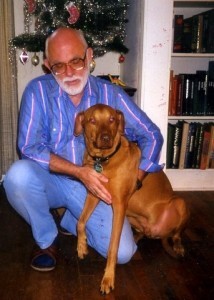
Photo by Alex Amador
George Baxt’s A Queer Kind of Death was the first gay murder mystery published by a mainline press aimed at a mass audience. It launched Baxt’s career. There were two more books in the series (none of them, by the way, marketed as Pharoah Love mysteries at the time), and he went on to gather a following for his celebrity mysteries, many of which had gay characters. Then came Hansen’s Fadeout in 1970.
Other early mainstream crime novels with a strong gay element include Dashiell Hammett’s The Maltese Falcon, Raymond Chandler’s The Big Sleep and The Long Goodbye, Ross Macdonald’s The Dark Tunnel and The Drowning Pool, Kenneth Fearing’s The Big Clock, Patricia Highsmith’s Strangers on a Train and The Talented Mr. Ripley, Theodora Keogh’s The Double Door, Edward Ronns’s State Department Murders, Vin Packer’s (Marijane Meaker) Whisper His Sin, Margaret Millar’s Beast in View. Some of these were paperback originals. Lacking a gay detective, none of them shows up in The Gay Male Sleuth, but I cover them in Gay American Novels. The one thing they have in common is that the gay characters are despicable (with the possible exception of the ambiguous Terry Lennox in The Long Goodbye and Paul Evarts in State Department Murders). This is also true of Baxt’s first novels.
After Garland’s novel the next gay detective shows up in a minor role in Martin Mayer’s A Voice That Fills the House. Then three important works appeared in 1961: William Drummond’s (Arthur Calder Marshall) novelization of the film Victim; Hugh Ross Williamson’s A Wicked Pack of Cards; and Lou Rand’s The Gay Detective. The last was put out by one of the erotic publishing houses on the West Coast and was thus probably not read by mainstream audiences. But it should be noted that pulp mysteries did not become sexually explicit until about 1967 or 1968. There is nothing in The Gay Detective to make your mother blush.
MM – As a judge for the Lambda Awards for Best Gay Mystery, what did you look for that made one book better than the rest?
DWG – Language, character, plot. Which book is the better written? Which has the more fully realized characters? Which has the better integrated story, with all the elements falling plausibly into place? (Which does not mean that every clue has to be solved.) There have always been three or four judges, so different tastes balance out. Sometimes the finalists may seem a bit eccentric to those who have not gone through the process, but every time I served there was always consensus about the winner.
I do wish that the name of the category would change from “mystery” to “crime fiction.” Some readers have trouble accepting thrillers, capers, inverted mysteries, spy novels, and the like as valid submissions. Also I wish the category would be reopened to true-crime writing; John Berendt’s Midnight in the Garden of Good and Evil was the winner in 1994.
MM – Gay mysteries seem to be taking on a new life as more people are writing in the genre, but more and more are resorting to self-publishing, e-books originals, or smaller publishers like MLR and Untreed Reads. What do you think of the current market for gay mysteries?
DWG – From your question, I sense that you may be gaining the same impression that I am: that niche marketing is the rule these days. I think writers hurt themselves though when they write for a particular, preconceived audience. Powerful writing comes from the heart; niche writers rely too much on their heads (and sometimes their groins). At the moment I’m most interested in how gaining marriage equality will change the LGBT readership. Some critics assert that we have already moved into post-gay writing. What does that mean? What is one to make of the fact that some of the best crime writing is being turned out by openly gay writers who are not particularly interested in creating gay characters? I’m thinking of writers like Richard House and pre-London Spy Tom Rob Smith. Are we arriving to the point where gay literature, outside of niche marketing, is just part of literature in general?
MM – You mention Joseph Hansen in your preface to The Gay Male Sleuth in Print and Film: I feel like he has almost taken on a deified role in the gay mystery community; who else pulled you into this subgenre? Are there any current authors that you really enjoy reading?
DWG – It is easy to forget how good Hansen is. All one has to do is reread Fadeout to remember that he deserves his special status. Josh Lanyon in a chapter in The Hell You Say has a moving tribute to Hansen’s power. But who else pulled me into gay mysteries? Certainly Michael Nava’s Henry Rios series, which is another gold standard; Richard Stevenson’s Don Strachey; R. D. Zimmerman’s Todd Mills; Reginald Hill’s Wield (in particular Pictures of Perfection). Then Nathan Aldyne’s Val, John Preston’s Alex Kane, Julian Barnes’s bisexual Duffy, Joe Lansdale Leonard. (What about Hap and Leonard becoming a television series!) Later, Jack Dickson’s Jas Anderson, John Morgan Wilson’s Ben Justice (who may also have a crossover readership), Ken Bruen’s Porter Nash. Also, Greg Herren, Neil Plakcy, Anthony Bidulka, Dorien Grey, Josh Aterovis, Josh Lanyon.
Standalones that I admire include Robert Bentley’s Here There Be Dragons, Jeremy Beadle’s Death Scene, Teri White’s Cowboy Blues, Caro Soles’s The Tangled Boy. There’s a special place in my heart for Drew Gummerson’s romance The Lodger, Ashok Mathur’s inventive Once Upon an Elephant, Hal Bodner’s comical Bite Club. I remain fond of some pulp mysteries: works by Victor Banis, William Lambert (now better known as William Maltese, with whom I collaborated for the Rimbaud-Verlaine novel Ardennian Boy), Peter Tuesday Hughes, Tom Hardy (his irrepressible Cock Stealers, which should be reissued), Michael Scott (aka Roland Graeme), Derek Adams (his Miles Diamond trilogy)—none of which are as explicit as some of the current M/M romances.
There are so many good gay novels. I regret I don’t have time to keep up with all the new ones coming out. Current writers that I do follow with interest include David Lennon, Marshall Thornton (why has he not gained a Lammy?), Garry Ryan, Andrea Speed (I love her werecat series). As should be obvious, I have pretty eclectic tastes. I like comic mysteries and true noir equally. And we haven’t talked about gay mystery films at all. I do a better job keeping up with them than I do with novels. Many are outstanding. In addition to the ones I star in the second edition of The Gay Male Sleuth, I’d like to highly recommend the French film Stranger by the Lake. Nominated for a Cesar, it is unlike anything produced in the U.S. Also of interest is another French film, Nobody Else But You.
JM – Revisiting an earlier question related to The Gay Male Sleuth in Print and Film, the bibliography is updated to 2010, with a release in November 2012. Are you sure there’ll not be another edition? If not, do you have any plans to hand off your invaluable resource to another to carry on the torch?
DWG – No way I would do a third edition. I am already six years behind if I were, and I’m getting no younger! I wish someone would start a supplement somewhere on the web. Is that not a project your group could take on? Altogether, you have the knowledge needed.
By the way, when talking about reviewing gay mysteries, I should have mentioned that I also posted reviews to the e-journal Reviewing the Evidence from 2005 through 2013. Whereas I assumed that my reviews for the Lambda Book Review would be read mostly by an LGBT readership, those in Reviewing the Evidence were aimed at a more general readership.
JM – Now that you’ve retired, do you have any guilty pleasures?
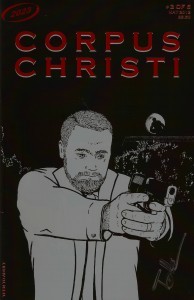
Corpus Christi cover by Trent Westbrook
DWG – It’s hard to realize that come August I will have been retired fifteen years. That’s almost a fifth of my life! Guilt went out the window a long time ago. Without trying to play Pollyanna, I like to pause now and then, even if I have not accomplished a thing to show for that day, to reflect on the fact that I have led a very happy life.
Stretching your question, I take a great deal of pleasure from the fact that Trent Westbrook, one of my former students, used me and my name (“Detective Gunn”) to create a character for his graphic novel Corpus Christi. A drawing of me was used as a cover for a very limited run of one chapter. It is a mystery, though not gay. Also a spiritual quest. I’m hoping it will come back into print.
JM – On behalf of the Facebook Gay Mystery-Thriller-Suspense Fiction Group, thank you for giving us a little of your time answering questions fans of the genre would like to know. Will you share a little about your current release and/or WIP
DWG – Thank you so much for having me. This has been fun. (And I notice that my Amazon sales for all my books has gotten somewhat better!)
As I mentioned in Part 1 of this interview, I spent the past several years reading and compiling Gay Novels of Britain, Ireland, and the Commonwealth¸1891–1981 and The Gay American Novel, 1870–1970 — that is, from The Sins of the Cities of the Plain (also reprinted by Valancourt Books) to the recognition of AIDS for the first book and from Joseph and His Friend to the first Pride Parade for the second (with an appendix giving a rapid overview through 1981). I’ve included crime novels in both works.
It intrigues me the way I read a book differently if I’m reading it as just a novel rather than as a mystery. Baxt’s trilogy offended me in many ways when I was reading each novel as an individual whodunit. When I reread the trilogy for The Gay American Novel as an example of satire with multiple targets and a large cast of characters, of whom Pharoah is only one, I discovered that I genuinely like the series.
To return to your question about judging, a good mystery can be judged by the same criteria one uses to judge any good novel; with good writing, genre is not significant.
Questions for Wayne Gunn? Feel free to reach out to him: marlowespy@gmail.com
March 19, 2016
Interview with Legendary Gay Media and Literary Historian, Drewey Wayne Gunn – Part 1
Interview by Matthew Moore and Jon Michaelsen.
Wayne, it is so incredible to be able to interview one of my idols of gay media! Thank you so much for taking the time to answer a few questions compiled by fellow member/super fan, Matthew Moore and I for Gay Mystery-Thriller-Suspense Fiction Facebook blog.
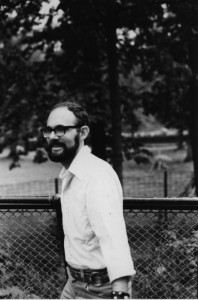
1968 shot by Daniel Flannery
JM – Why don’t we start off with where do you live?
DWG – I live in a small ranching town in South Texas. Sometimes I feel rather isolated here, but that is my fault. I’m just not that gregarious. I don’t take advantage of conferences and festivals the way I could. Part of it is my age, of course.
JM – Without getting too personal, would you share a little about your home life?
DWG – As you can gather, I lead a pretty quiet life. I lost my partner of twenty-one years to a heart attack. I enjoy the company of a few close friends, taking long walks with a canine companion, reading, keeping abreast of new gay films, and, of course, writing.
JM – You have become a very well-respected historian of gay literature. Most notably, The Gay Male Sleuth in Print and Film: A History and Annotated Bibliography is a much beloved, go-to resource for fans of the genre and academics alike. Can you share a little about how you came to compile the bibliography?
DWG – It was more or less an accident. My father having died and my having just retired from teaching, I returned to my childhood home to become my mother’s caregiver when she fought her final battle with ovarian cancer. Now that I didn’t have to keep up with my teaching field but could read anything I wanted, I began exploring gay mysteries to pass the time. Even as a child I had been drawn to the mystery genre. I enjoyed Nancy Drew as much as I did the Hardy Boys, and I early discovered Agatha Christi. (I sometimes wonder how much influence the Bobbsey Twins have had on my life. Two of my favorite books were The Bobbsey Twins in Mexico, which might explain why I ended up in South Texas, and The Bobbsey Twins at Mystery Mansion.) During the 1970s and ’80s I was a big fan of Joe Hansen’s Brandstetter series. Now, back at my mother’s home, I started discovering Hansen’s “literary children.” Before I knew it, I had read something like a hundred gay mysteries. At that point, old habits kicked in: I felt the need to bring some order to what I was discovering. The first step then was to catalog the books, and that led directly to the bibliography.
MM – To start with I wanted to let you know that before I make any purchases or suggestions, I reach for The Gay Male Sleuth in Print and Film. It has been a great aid to me in finding a true first edition, ordering books in the correct order, and reading about the books before I make the plunge. It has been a great investment.
You listed a lot of people in your preface that helped you put together the book. Is this how you find older gay mysteries and pulps that are by nature easily destroyed?
DWG – Thank you for those kind comments. I always hoped that the book would be of value for the general reader, and I regret that some people have felt the price is too steep for their budget. But it seemed essential to have a reputable academic press publish the work if it was to be taken seriously by libraries and indeed by reviewers.
As to your specific question, bibliographies build on previous bibliographies. That is the nature of the game. The works listed in the section “Critical and Bibliographical Resources” provided the foundation. Then to fill in the holes, I turned to the people listed in the acknowledgments. In particular, the four people to whom I dedicate the two sections of the second edition of the bibliography were very supportive.
Bibliographies, by the way, are never complete, no matter how good the bibliographer is. Something always eludes even the most diligent searcher. That explains why a second edition of a bibliography is always called for. A second edition also permits the compiler to clean up any mistakes and to take advantage of users’ feedback to make the work more user-friendly. I prefer the introduction to the first edition; I had to cut it radically to compensate for the greater length of the second edition. But the second edition is the one mystery fans should be using.
MM – Same regarding movies, TV shows, manuscripts, and finding gay characters not as protagonists but as friends or acquaintances that help the detective?
DWG – This section was harder to compile; there existed fewer resources for finding titles. I had to rely a lot on the web, refining my search terms in an effort to build up a comprehensive list. I’ve been somewhat disappointed that I’ve gotten less feedback about this section.
MM – Otto Penzler, author of The Bibliography of Bibliomysteries, told me that he “may reissue again. But not after 2000. Too many self-published books, e-book originals, and other things that could drive me crazy.” The Gay Male Sleuth in Print and Film is updated to (I believe) 2010. In your preface, you state that you doubt there’ll be a third edition. Is that for the same reasons Mr. Penzler gave?
DWG – From the beginning I decided to omit e-books for the simple reason that I have no idea how they will survive once they are, so to speak, out of print. Maybe I don’t understand the technologies, but years from now, how would one be able to track down “used e-books”? As for self-published books—frankly some of the best mysteries these days are self-published by authors just not willing to go through the hassles created by large presses.
No, I confess M/M romances masquerading as mysteries did me in. Since many of these books are worth reading, I couldn’t just ignore the subgenre, but when I realized that I was literally getting a headache each time I had to face reading another saccharine novel by two different best-selling writers, I realized it was time to move on.
MM – The art of writing a bibliography seems to be declining which seems to me (Matt), a shame. I have tried finding bibliographies for other genres that I really like, but can’t find many. As mentioned above, I use Otto Penzler’s Bibliography of Bibliomysteries, but do you think in this day and age of the Internet, Amazon, and the dreaded Wikipedia there’s no longer a need to write bibliographies?
DWG – Why “dreaded” Wikipedia? I find it one of the best resources available for popular culture, and it is the logical place to compile the types of bibliographies you are searching for, since it can constantly be added to. I do regret that Wikipedia seems to have lost its original democratic approach to knowledge. I suspect under goading from academic snobs, it now insists on sources, footnotes, and the like, rather shutting out individual knowledge and ignoring the fact that a footnote does not automatically prove the source is trustworthy. But it seems to me a marvelous place to continue my and Markowitz’s bibliographies, the science fiction bibliography that was compiled in the early ’90s, and to create new ones, such as gay and lesbian westerns.
Tom Norman compiled an indispensable bibliography of American pulps, but I so wish someone would bring out an annotated edition. And Ian Young’s great bibliography of gay writing of all types was published thirty-four years ago. We badly need a second volume covering the period since then; we have seen such an explosion of gay writing during this time. More needs to be done with lesbian literature and with transgender literature, though (as must be obvious) I am wary about lumping them together as if they have the same histories and outlooks. Yes, there are similarities and crossovers, but they have such different epistemologies that they really do not fit comfortably together.
JM – Most gay mystery fans know you from your long stint penning book reviews and writing the highly popular column, GunnShots, for the Lambda Literary Newsletter. I came to count on your recommendations to an often overlooked sub-genre of gay literature through your reviews, and definitely through GunnShots. I was crushed to hear the column would not continue beyond the Winter 2013 edition, as I’m sure many of your fans were. How long did you author GunnShots for the newsletter? Have you ever considered continuing something similar in another medium, such as an independent blog?
DWG – I reviewed books for ten years, under three, maybe four, different editors, continuing with it when the Foundation moved from Washington, D.C., to West Hollywood and the Review changed from a print to an e-journal. I also was a judge for the Lammys for eight of those years.
A blog is an interesting idea. I just don’t have the energy anymore. I have turned from annotated bibliography to writing guides. Gay Novels of Britain, Ireland, and the Commonwealth, 1881–1981, came out in 2014. Surprising as it seems, it was the first such survey ever undertaken. Brits don’t seem interested in considering gay and lesbian writings as specific subgenres. This year I published Gay American Novels, 1870–1970. It did build on three previous surveys, but I unearthed several gems that have been ignored. Plus, I realized each generation needs to resurvey its literature anew. Our perceptions change. I really would like to see both books gain an audience. I don’t think the majority of the younger generation realizes what a rich heritage we have. And that’s a shame.
JM – Are you currently researching a new project that you can share a little about with us?
DWG – Logically I should have turned to a third reader’s guide, something along the lines of “Gay Novels in English Translation” to complete my surveys. But instead I got interested in plays. I’m currently working on compiling a gay repertoire, singling out plays available in English that have significant gay characters from Aristophanes to Chay Yew. I’m having even more fun than I had anticipated rereading familiar scripts and making new acquaintances.
To be Continued… Part 2 of the interview with Wayne Gunn will appear here Saturday, April 2, 2016.
Got questions for Wayne Gunn? Feel free to reach out personally to him: marlowespy@gmail.com
Access past GunnShots via Lambda Literary archives here:
http://www.lambdaliterary.org/author/...
March 12, 2016
Exclusive Excerpt: Cheap As Beasts by Jon Wilson-Lammy Finalist in Gay Mystery
Exclusive Excerpt – Lambda Literary Award Finalist in Gay Mystery
Cheap As Beasts by Jon Wilson
At ten o’clock, I was trying to get the three magazines in the foyer to fan properly atop the small table. Not that anyone would want to read them. The newest was from March. I had tried sitting in my chair smoking, but that wasn’t going to work. At ten-ten, I was standing by the open window, practicing tossing my hat across the room and getting it to catch on the coat rack. At ten-twelve, I heard the elevator ding for the third time and leapt to get settled in my chair.
Unlike the two previous dings, this one was for me. The outer door opened, and he strode into my office a moment later.
I was leaning back in my chair, my feet up on the corner of my desk, my ankles crossed, a cigarette hanging jauntily from the corner of my mouth, and I looked up at him like he was the last person in the world I had expected to see. “You’re late.”
His ginger hair was combed neatly to one side, and he had gone with nice blue-gray slacks of light cotton. He had on a sweater vest, a ten dollar tie, and no hat. These kids today. Control of his expressions had not quite returned to the level he’d exhibited that first time we’d met. His cheeks ripened as he stood and looked at me. “I nearly didn’t come.”
“Sure. That’s natural.”
“What is? My almost not coming or my saying that?” He ran his hand through his hair negating in a moment all the hard work he’d apparently done on it. He was talking fast, like he had sat somewhere building up his nerve, and now it was unwinding like a top. “Because it’s a lie, of course.” He moved jerkily over between the two client chairs and then took the one on his right. He plopped down into it hard, like it was his turn to prove a point. There was more to his soliloquy. “I don’t even know why I said it. I tried to convince myself I might not come. I wasted a lot of time and plenty of good bourbon on it. But the more I drank, the more inevitable it seemed.”
“How much have you had today? Liquid courage, I mean.”
He looked up at me, his eyes wide. “You just…you’re brutal. Is that attitude supposed to help? Keep me from lapsing into shock like—” He swallowed something hard. “Like that slap you offered yesterday? I saw those tricks during the war. It struck me as bunk then, and it strikes me as bunk now. And brutal. Give me a cigarette.”
“Say please.” But that just confused him, so I dug out my pack. “You people. Why don’t you carry your own?”
“I usually do. My mind was a bit distracted this morning. I…I think I have a pack in my car. Probably.” Taking the cigarette I offered, he did produce his own expensive, gold-plated lighter, which made me think he might not have been lying about normally carrying his own. He lit up and sat back, relishing that first puff. He closed his eyes closed, then opened them and perused my desk. “Why don’t you keep some out? For clients. My broker has a Faberge dispenser he keeps right about here.” He leaned forward to touch my desktop near the front about a foot from the corner. “Three different brands of cigarettes.”
“Sure. Faberge. It would match the couch.”
He sat back, examining the cigarette I’d given him. The smoke or the tobacco or maybe just having a toy in his hand that he could fiddle with had done the trick. His words weren’t tripping over themselves trying to make it out of his mouth. He took a slow breath and let it out. “I like that couch. You’d be surprised what an impact seeing that thing had on me. Lana wasn’t at all keen to even come in here after getting a look at your hallway out front. But the instant I saw that couch, I knew we’d found the right place.”
It was my turn to be confused, so I backtracked. “I thought you said you were on an English holiday during the war.”
“No, that’s what you said. Trying to be rough. And I haven’t had anything to drink today.”
“Want some?”
“No. Damn it, I couldn’t. Not after yesterday.” He attacked his hair again. The problem was that he was shoving it against the part, and it was falling down in a scattered mess across his eyes. “I don’t think I stopped drinking after the police left. And you came. I think I thought you were going to help.” He glanced up at me through his bangs.
“Is that why you called me Tuesday night?”
“Called you?”
“Yeah, Tuesday at about ten. I got a message you had called.”
He seemed genuinely perplexed. “I don’t know—oh!” It hit him. “Yes. I mean, no. I was calling to apologize. For Lana and…and what happened. It was nothing. I’d completely forgotten I’d telephoned you. That’s strange?” He put it up to me like a question.
I shrugged. It didn’t strike me as too remarkable in light of all that had happened since. “You sure you don’t want a shot of something?”
The corner of his mouth went up. “It’s not even ten-thirty.”
“What time did you start yesterday?”
“Nine. Maybe. Maybe eight-thirty.” He took another deep breath. “But that was different. Yesterday was a nightmare. The police were brutal.”
“The police were brutal. I’m brutal. Brother, you have no idea. This thing’s just leaving the gate.”
He slid lower in his chair, propping his arms on the rests. His hips were nearly riding the front edge of the seat cushion. He looked disgusted about something, but whether it was murder or the twin brutalities of me and the police, or maybe just his drinking, I can’t say. He wasn’t much of a smoker either. The cigarette spent more time smoldering between his fingers than it did in his mouth.
“I’m not really that weak. At least—God, I hope I’m not. It’s just they all decided so long ago that I was unfit for…so much of life. Those things weren’t for me. I wasn’t to be allowed in. I guess I’d gotten used to breezing along the periphery of everything. My life wasn’t real. Now it’s…” He hesitated.
“Real?”
He gazed at me again, shaking his head. “Don’t laugh at me. I may very well still be drunk.”
“Are you normally that type of drunk? The philosopher?”
“I’m normally the fool. Drunk or sober. Ask anyone.”
“Sure, now you sound like a whiny rich kid.” He no doubt thought that brutal, but I meant it. I sat forward. “Did you do what I asked? Did you bring the letter?”
“Asked? Is that what you call it?” He dug a folded paper from his breast pocket. “Yes. It wasn’t easy. Joe said you and he had discussed it and agreed he would take the lead. He didn’t want me to—what’s so funny?” He stopped in the process of handing the document over, apparently put off by my laughter.
“Nothing.” I quashed the chuckles and took hold of one end of the paper. “Nothing is funny at all.”
He didn’t let go of his end. I could see he doubted me. “Then why are you laughing?”
“That Joe.” I gave the paper a tug, prompting him to release it. We both sat back. “Sometimes he gets confused.”
O’Malley flattened his tie to his chest and then reached up to comb his fingers through his hair the right way this time, pushing his big curtain of ginger bangs back across the top of his head. He was looking at something on the edge of my desk. “I don’t know. He seems pretty slick to me. Too slick. Lana’s—” He stopped himself with a visible jerk and swung his gaze up at me.
I tried to make him think I wasn’t paying attention. I’d opened the document in my hands and gave it a thorough look. It was plain stationery, eight-by-five, yellow, with no date nor addressee nor salutation. About halfway down the page someone had typed:
What was in the drink his wife gave him the night Lawrence O’Malley died? Why had the glass been removed and washed before the police arrived? Why had the entire staff been given the night off? Two men dead. How many more shall follow?
Naturally there was no signature, but without trying to prop myself up, I think I knew immediately who had sent it. And it wasn’t just a hunch or intuition; it was keen observation and the fact that at least one person the day before had let on that she knew too.
To purchase:
http://www.amazon.com/Cheap-as-Beasts...
Where to find Jon Wilson:
Website:
http://jonwilsonauthor.blogspot.com/
Goodreads Profile:
https://www.goodreads.com/author/show...
Ramblings, Excerpts, WIPs, etc.
After publishing sevearl short-fiction stories and novellas, he published his first novel, Jon Michaelsen is a writer of Gay & Speculative fiction, all with elements of mystery, suspense or thriller.
After publishing sevearl short-fiction stories and novellas, he published his first novel, Pretty Boy Dead, which earned a Lambda Literary Finalist Gold Seal for Best Gay Mystery.
He lives with his husband of 33 years, and two monstrous terriers.
Contact him at: Michaelsen.jon@gmail.com
Or the following:
http://www.jonmichaelsen.com
http://www.facebook/jonmichaelsen
https://www.amazon.com/-/e/B002BLLAEG
...more
- Jon Michaelsen's profile
- 125 followers


